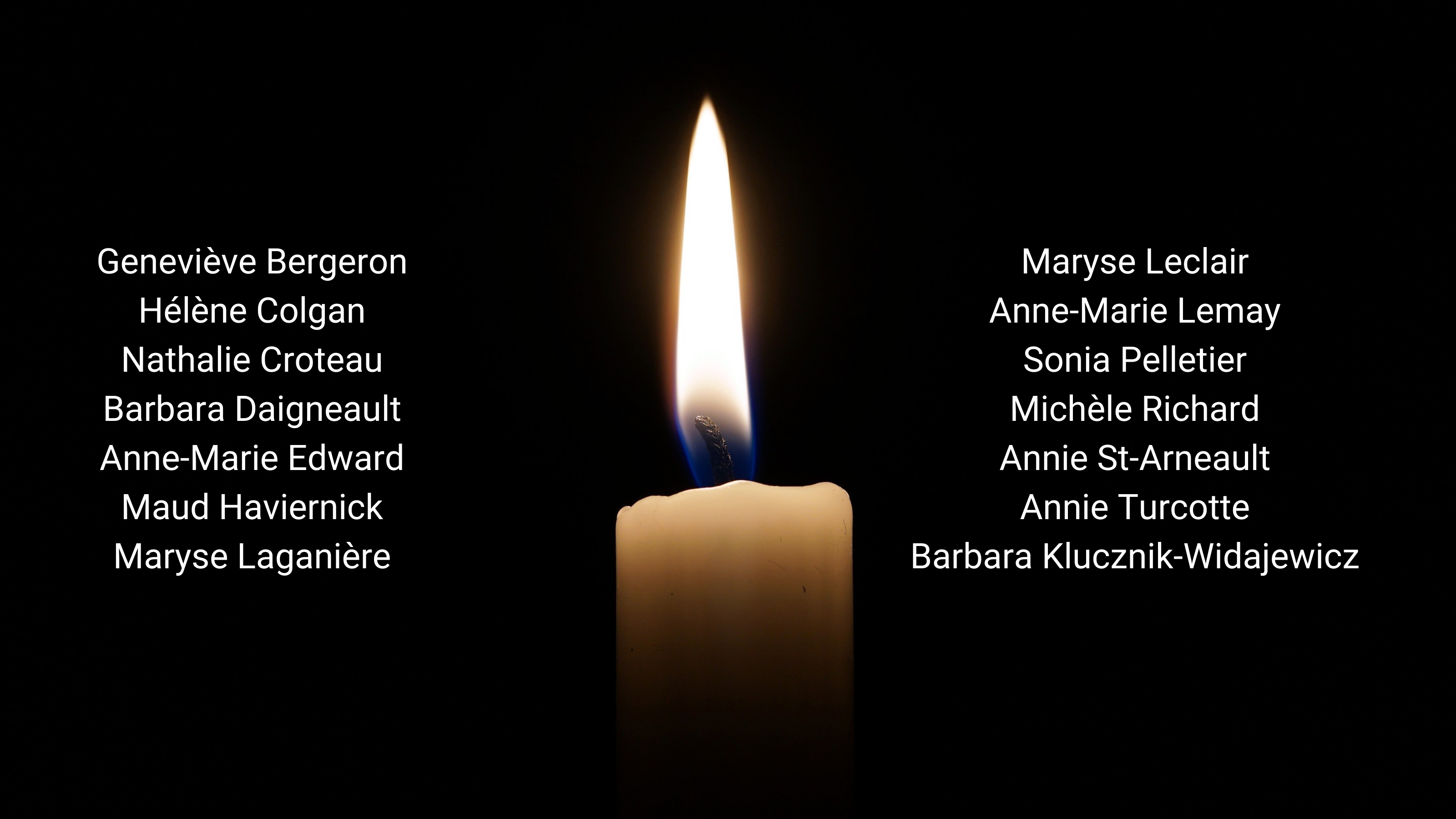Every year on December 6, Canadians across the country honour the National Day of Remembrance and Action on Violence Against Women, a day dedicated to remembering the gender-motivated murder of 14 young women at Polytechnique Montréal in 1989. Unfortunately, gender-based violence still persists in our communities today, and it's a systemic issue that the national Courage to Act project is attempting to address. With a Canadian team of interdisciplinary experts, including nine from the University of Alberta, Courage to Act is developing tools, resources and strategies to help institutions better address and prevent gender-based violence.
As the U of A's Director of Student Conduct & Accountability, Deb Eerkes, has been part of Courage to Act's Reporting, Investigations and Adjudication Working Group since 2019. Her work with Courage to Act is directly informed by, and a continuation of, her work on gender-based violence at the U of A.
What is Gender-Based Violence?
Gender-based violence refers to harmful acts directed at an individual based on their gender, and is often rooted in gender inequality, the abuse of power and harmful norms. Eerkes says that gender-based violence is sometimes used synonymously with sexual violence, but in reality the term is much broader than that and encompasses a broad range of harm based on gender, gender identity or gender expression. This includes anti-trans hate and intimate partner violence.
“Education and prevention often tries to address gender-based violence as an individual act or individual pattern of behaviour,” Eerkes says. “However, we can see over many decades that this behaviour hasn't stopped, because it permeates our culture." For example, popular culture often treats women as sexual objects, or makes sexual violence or gender identity the punchline, and reinforces harmful power structures. “While we try as institutions to deal with it as an individual problem and remove the individual, we see that it doesn't solve the problem–so it must be a systemic problem.”
Through an Intersectional Lens
Gender-based violence doesn’t exist in a vacuum, and neither can the tools used to combat it. “If we look at it as a part of all of the kinds of violence that are exerted, gender-based violence becomes a part of that picture," Eerkes says. "It is used as a weapon of power, just like racism, or colonialism.” Gender-based violence is also intersectional; while the Missing and Murdered Indigenous Women and Girls crisis is an example of how Indigenous women and girls are far more likely to be subjected to gender-based violence, there are also racial and colonial elements to this violence. “We can’t look at gender-based violence as its own issue, it has to be a broad reimagining of how we exist in the world," Eerkes says.
Equipping our Communities
The Courage to Act project is meant to provide resources and frameworks for addressing and preventing gender-based violence on campuses in Canada. The initiative looks at three specific areas: education and prevention, response and support, and reporting, investigation and adjudication. In addition to Eerkes, eight other U of A faculty and staff participated in the program across five of ten Communities of Practice. On November 23, the Reporting, Investigations and Adjudication team launched their new toolkit, “A Comprehensive Guide to Campus Gender-based Violence Complaints”. For the next few years, the group will be conducting training on how to use procedural fairness and trauma-informed practices to reduce harm. “We are making sure that the procedural fairness we’ve always approached complaints with is supported by trauma-informed practice, to make it a stronger and more ‘human-friendly’ process," Eerkes says.
Continuing Advocacy Year-Round
Eerkes says that National Day of Remembrance and Action on Violence Against Women is an occasion that acts as a continuous reminder that we need to prevent a tragedy like that from ever happening again. “Every year, when we come back to honour those affected by gender-based violence on December 6, we are reminded that we’re not finished yet, that we still have so much to do,” Eerkes says. “It’s also good to remember how far we’ve come, and that people continue this work, and that student advocates continue to push [institutions] on this. These annual commemorations are a good reminder both that we’ve got work to do, and that we have accomplished some things, too.”
On December 6 we remember Geneviève Bergeron, Hélène Colgan, Nathalie Croteau, Barbara Daigneault, Anne-Marie Edward, Maud Haviernick, Maryse Laganière, Maryse Leclair, Anne-Marie Lemay, Sonia Pelletier, Michèle Richard, Annie St-Arneault, Annie Turcotte and Barbara Klucznik-Widajewicz.
All members of the U of A community are invited to NASA's annual commemoration event online on Monday, December 6 from noon to 12:45 p.m..
